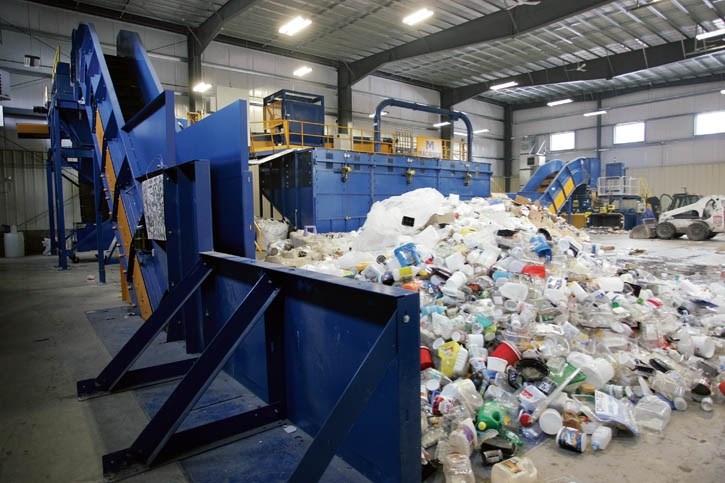The Regional District of Central Okanagan has been successful in reducing the amount of contaminants placed in curbside recycling carts through a five-month pilot program.
The program that made use of smart cameras and artificial intelligence technology helped reduce contaminants by 23 per cent.
The technology was able to detect when the wrong materials landed in recycling carts and let the resident know in real time.
The goal of the program was to reduce overall contamination levels which have led to costly surcharges for local municipalities.
A report for next week's RDCO board meeting also suggests residents of the Central Okanagan are doing an "excellent job" with their recycling.
Estimates show nearly half of all residents are recycling correctly.
"The pilot findings also showed 35.6% of residents were considered 'learners,' meaning they received a postcard, they then changed their behaviour in subsequent recycling collections," the report states.
"Over a third of residents changed behaviour after just one postcard. The findings also showed 6.7% of households that are considered 'repeat offenders' are responsible for a third of the recycling contamination."
The top three contaminants identified in the pilot were flexible plastics, such as blue bags, wrappers, grocery bags, chip bags and wrappers (which belong at the depot), garbage, and Styrofoam (also depot only).
“The good news is the pilot has shown a huge percentage of our residents are recycling correctly, and this direct approach to recycling education can really help improve the quality of recycling by providing residents timely personalized feedback based on their actual recycling habits,” says solid waste services supervisor Cynthia Coates.
A total of 8,777 postcards were mailed out during the pilot. The special technology was added to four recycling trucks at a cost of $68,000, half of which was paid for by Recycle BC.
The RDCO is now exploring options to implement the use of this specialized AI-powered technology on the recycling collection trucks on a more permanent basis.



